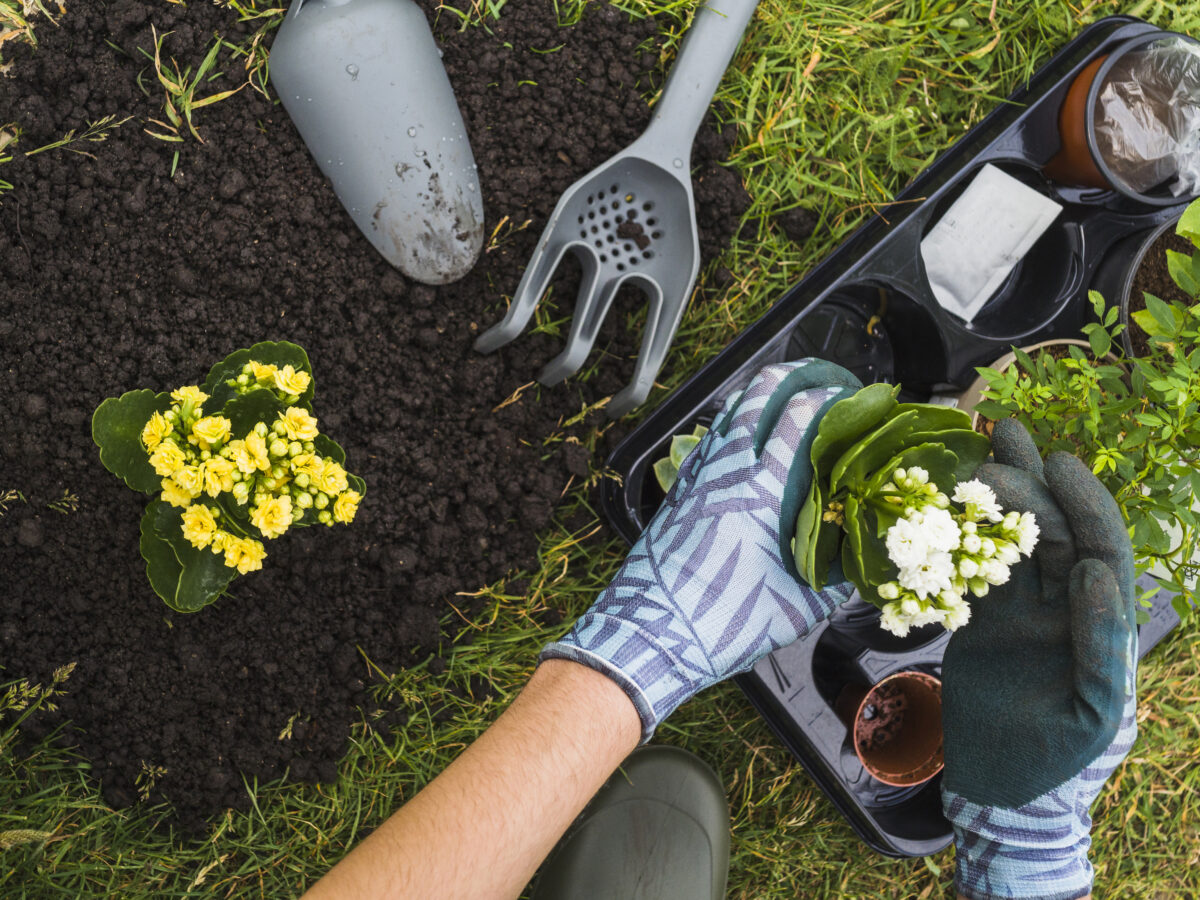Spring is often associated with renewed energy, rejuvenation, and rebirth after the long winter months. But what’s true for you and your garden is also true for pests, which are at their most active during this season! Understanding how to keep your garden and home safe from unwanted visitors can help you boost the level of livability, comfort, and hygiene of your entire living environment.
In this guide, we’ll cover a few strategies to deter pests and other unwelcome guests from your living spaces without harsh chemicals, so that you can make the most of a safe home and garden. Let’s dive in.
Why Spring is a Critical Season For Pest Prevention
Spring is a critical and yet delicate time of the year, especially when it comes down to looking after your plants, getting the garden ready for garden, and making sure that you are not at risk of pests invasions.
Unlike winter, when pests are less active, or summer, when they are always around and easy to address, spring is when many pests start to become a problem. That is because, during this time, most insects, birds, and other animals look at places to nest – which could well be sheltered parts of your home or garden! For example, termites also begin to swarm and look for new spots to start colonies. On the other hand, mosquitoes thrive as it gets warmer and wetter.
Ultimately, taking steps to control these pests in spring can save you a lot of trouble later in the year!
Identify and Seal Entry Points
One of the first steps to prevent pests from entering your home is to identify and seal their entry points. For example, ants often sneak in through tiny cracks in walls or foundations. Mice can find their way through holes or gaps around pipes and cables. And, mosquitoes might come in through unscreened windows or doors.
Carefully inspect these areas and take steps to seal them with caulk, steel wool, or proper weather-stripping. This simple strategy can help you significantly reduce the likelihood of pests nesting and dwelling in your home.
Choose and Plant Natural Pest Repellents
When it comes to getting rid of pests without harsh chemicals or invasive methods, a treasure trove of possibilities can be found in the natural world. Certain plants, when cultivated carefully and in the right places, can help you manage the risk of pests and unwanted visitors to your harden. These include:
- Basil: Repels flies and mosquitoes.
- Lavender: Deters moths, fleas, and flies.
- Marigolds: Known to discourage mosquitoes and aphids.
- Chrysanthemums: Keep away roaches, ants, ticks, and silverfish.
- Mint: Repels ants and mice.
- Rosemary: Discourages a variety of insects.
- Lemongrass: Contains citronella, a natural mosquito repellent.
- Petunias: Repel aphids, tomato hornworms, and squash bugs.
If you live in a specific climate area and are looking for information on how to get rid of flies and other pests naturally, be sure to speak to a specialist who understands the unique features of the local climate and soil.
Use Essential Oils as Natural Pest Deterrents
According to studies, some essential oils can represent an all-natural ally in your fight against pests. Some of the most efficient ones include:
- Peppermint Oil: Deters spiders and ants.
- Lavender Oil: Keeps moths and fleas at bay.
- Tea Tree Oil: Repels flies and mosquitoes.
- Lemongrass Oil: Effective against ticks and mosquitoes.
- Eucalyptus Oil: Deters flies and mosquitoes.
- Citronella Oil: Known for repelling mosquitoes.
- Clove Oil: Disrupts ant trails and repels ants.
When using essential oils, it is important to keep in mind that some of them can be toxic for pets and children. Be sure to understand how to use them safely before applying them around the house.
Install LED Lights to Reduce Attractiveness to Pests
Your garden lighting can play a significant role in attractive insects, safeguarding wildlife, and keeping at bay unwanted pests. For example, flashing or movement-activated LED lights can help you keep your garden safe from larger pests like foxes.
In any case, it is important to choose your gardening light wisely. According to research, outdoor lights can disorientate or blind some animals – such as moths and nocturnal birds – and make certain areas inaccessible for some wildlife species like bats.
Pro tip. Some animals are incredibly beneficial for your garden’s ecosystem. For example, bats can eat up to 1000 mosquitoes every hour. Similarly, ladybugs are natural predators to aphids, mealybugs, and other harmful pests in the garden.
Implement Companion Planting in Your Garden
When planning for the perfect spring garden, it is important to give some thought to the practice of sacrificial planting or companion planting. This practice involves planting a certain species next to your crops or more valuable plants. This plant will attract most bugs and pests, keeping them away from your vegetable garden or delicate additions.
Maintain a Clean and Organized Environment
Reducing clutter and maintaining your garden clean and tidy play a significant role in helping you prevent pests infestations.
Not only maintaining your garden means you’ll be inspecting critical areas often and in detail, but a clean outside area can help you seal entry points and potential nesting areas. Plus, you’ll be able to notice the signs of the presence of pests quickly, which allows you to tackle the issue before it develops into a larger, more expensive problem to address!
Improve Yard Drainage to Avoid Standing Water
Standing water in your yard attracts pests like mosquitoes, which breed in water. While, in most areas, mosquitoes won’t bring dangerous diseases, mosquito bites can be a significant annoyance and even prevent you from enjoying your summer evenings outdoors!
Because of this, ensuring proper yard drainage is crucial. Start by cleaning gutters and downspouts. Then, grade your lawn away from your home to prevent water pooling. You can also install drains or a dry well, if necessary to keep your yard dry, making it less inviting for pests and insects.
Apply Diatomaceous Earth in Key Areas
Diatomaceous earth is a natural, non-toxic powder that kills insects by dehydrating them. It’s effective against ants, fleas, bedbugs, and other pests. If you are opting for this alternative, start by lightly dusting it around your home’s perimeter, in cracks and crevices, and near entry points.
If you are looking to use it inside your home, focus on areas where pests are a problem, like under appliances, along window sills, or in rooms like the attic or basement. To maintain the safety of your home, always use food-grade diatomaceous earth and follow the instructions carefully.
Carry Out Regular Home and Garden Inspections
Last but not least, be sure to carry out regular inspections of your home and garden. If you notice signs of the presence of pests – like droppings, tracks, or nesting, get in touch with an expert immediately and address the issue as soon as possible.







